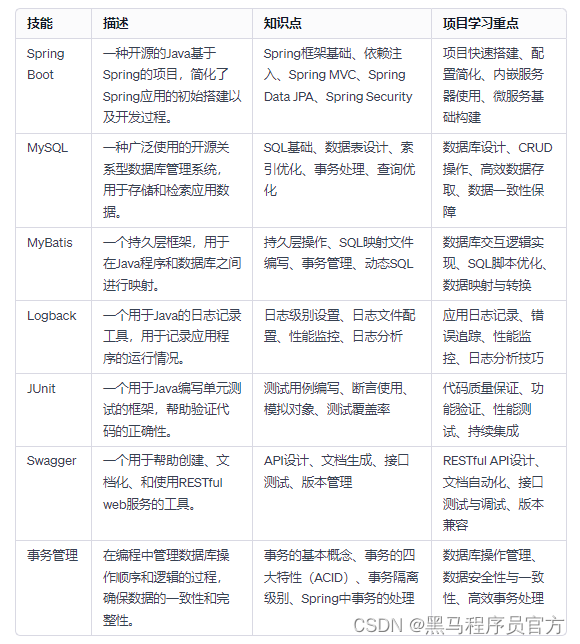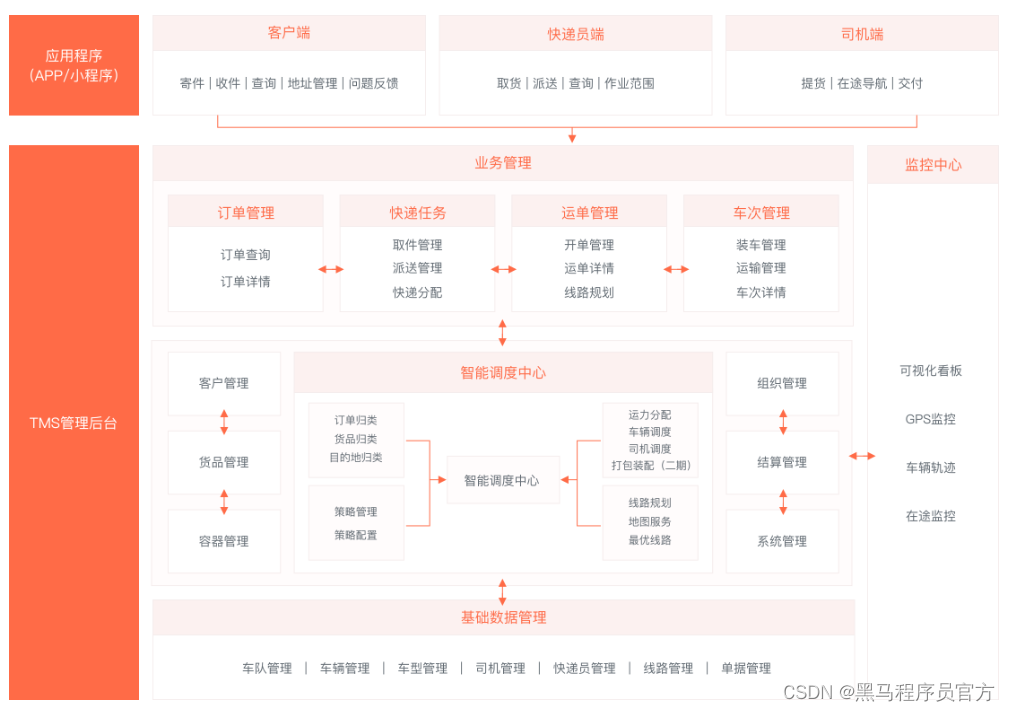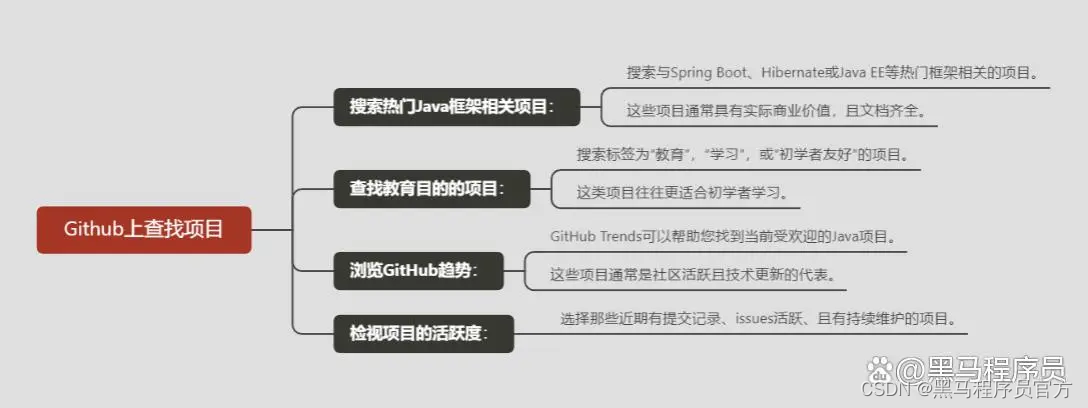Many people want to learn Java but are afraid of employment problems. The method given by the dark horse programmer below is first to reduce the cost of learning, and secondly to indicate the direction of learning. On the contrary, you may spend a lot of time studying and don't even know the reason why you can't find a job. The following is suitable for students majoring in computer science, as well as those who are self-studying Java.
1. Run through commercial projects
The most difficult thing about finding your first job is "experience" . Even for school recruitment, if you have internship experience, you will have an advantage over classmates without internship experience. Not to mention "social recruitment", if the work experience is not reflected on the resume, there will basically be no chance of an interview.
Then, it becomes particularly important to complete a project during our self-study period. Not only do you have to prove that you have done a project, the project also needs to be a commercial project.
Commercial projects are used to make profits, such as those done by companies, or picked up by school teachers from outside. There are two important points. The first is to make money, and the second is to be online.
Just run through it, you don't have to write it from scratch. In this project, you must at least master Springboot, Mysql, Mybatis, logback, junit unit testing, swagger and transactions .
2. Multiple processes constitute a real project
When we prepare the project, we first need to know that this project needs to be written on the resume and to cope with the interview. You can prove that you have developed Springboot through annotations and usage, and you can also prove that you have developed a commercial project through grammar lecture logs and usage details of unit tests. Finally, draw out highlights and solve problems to prove your abilities.
The real project is composed of add, delete, modify and check modules
First, let’s take a look at Dark Horse’s logistics project business structure:

When discussing the Spring Boot back-end project in the interview, we can summarize its core business logic as operating on the maintenance information data table, including adding, deleting, modifying and querying. Specifically, this means that the front-end page will initiate operations related to maintenance information, and these operations are ultimately implemented through the controller layer, business logic layer and data access layer (Repository layer) in the Spring Boot framework, and generate data on the database. Influence.
Once approved by the interviewer, you can then discuss in depth the specific implementation methods, including the parameters, annotations and key classes used, to demonstrate your back-end development skills and knowledge in the Spring Boot environment.
3. Where to study? How to learn?
First of all, you can learn the project structure and code organization through the Dark Horse project, and learn the use of project management tools such as Maven through the project to understand how to build and manage Java projects. During the learning process, you can also understand business applications, and colleagues are exposed to technology stacks such as mysql and mybatis.
Later, you can find relevant commercial project examples on github and learn the project structure and code organization. Master RESTful API design, database interaction, security, testing, and more through hands-on experience.

I hope that the above content will be helpful to all friends who are learning Java. After all, commercial project experience is the best endorsement for job seekers. If you have any questions, you can post them in the comment area.